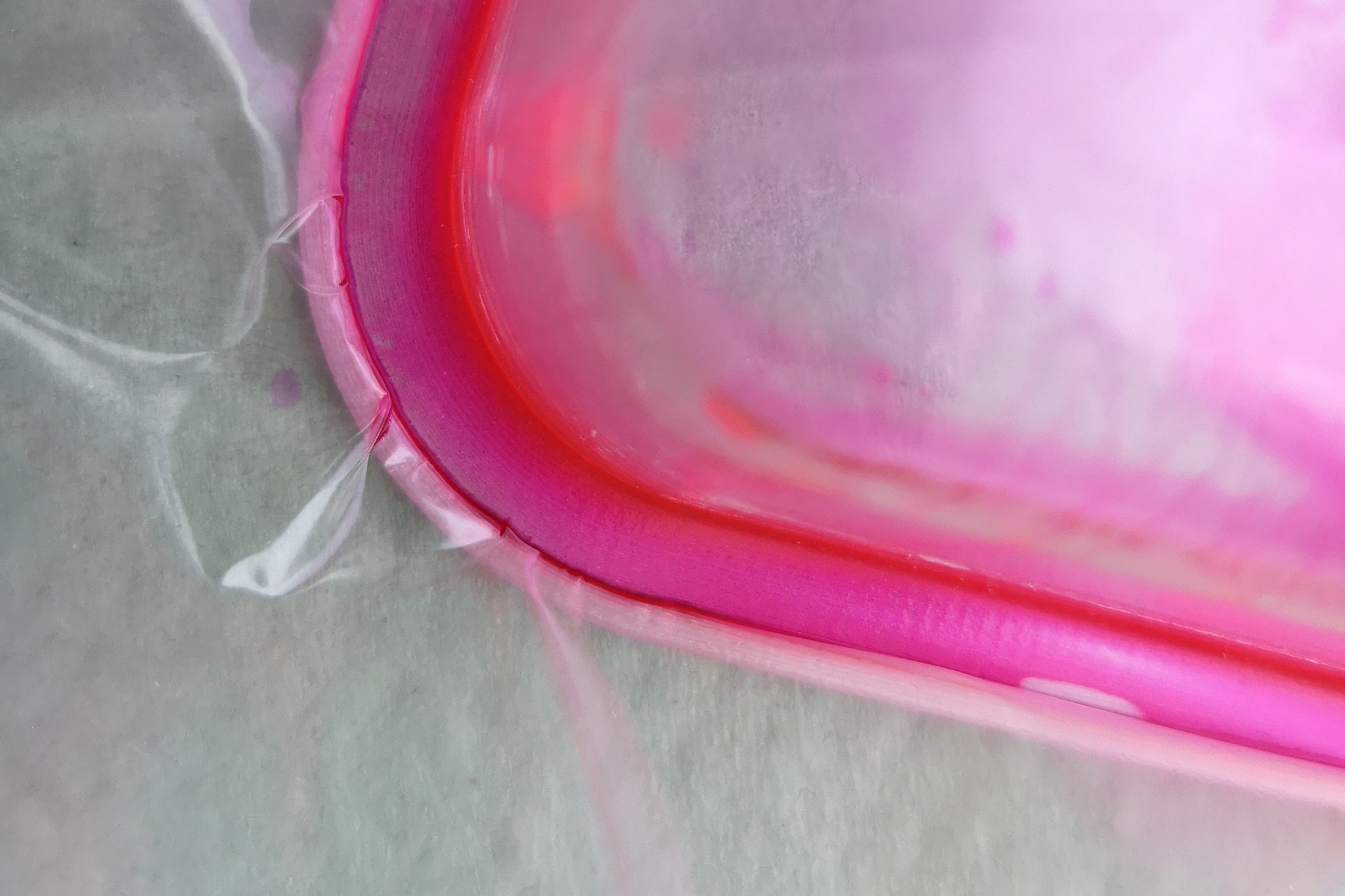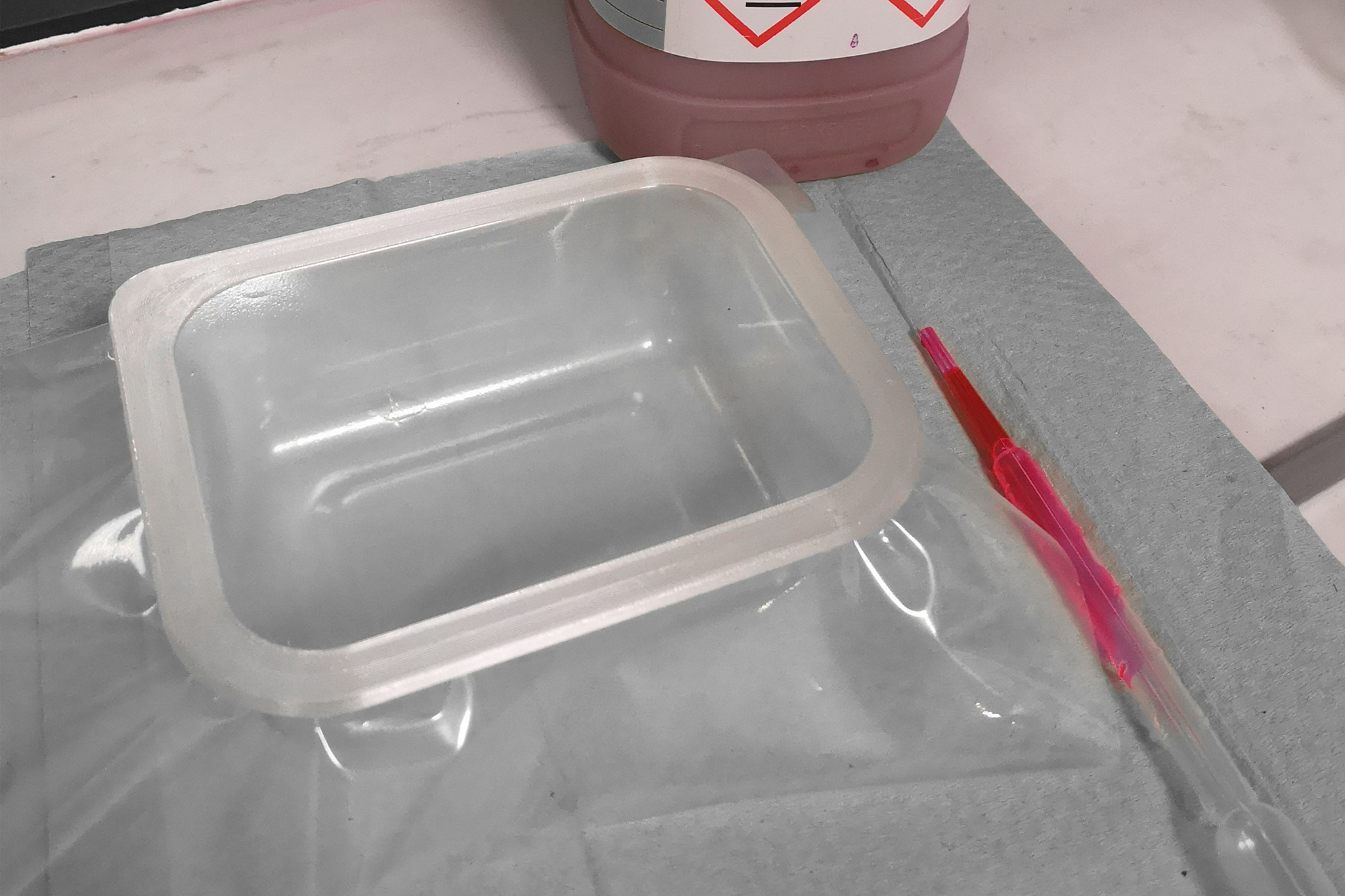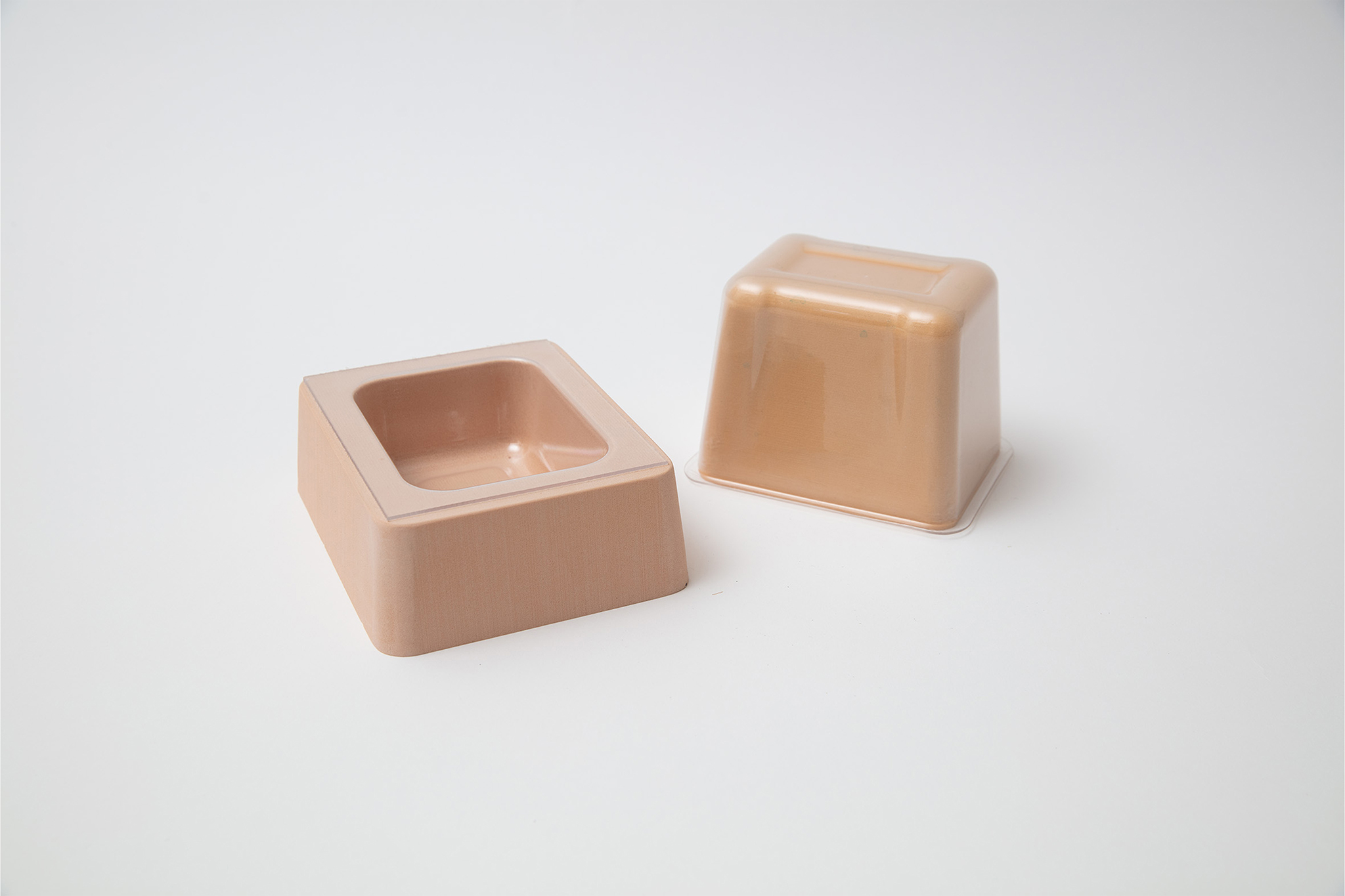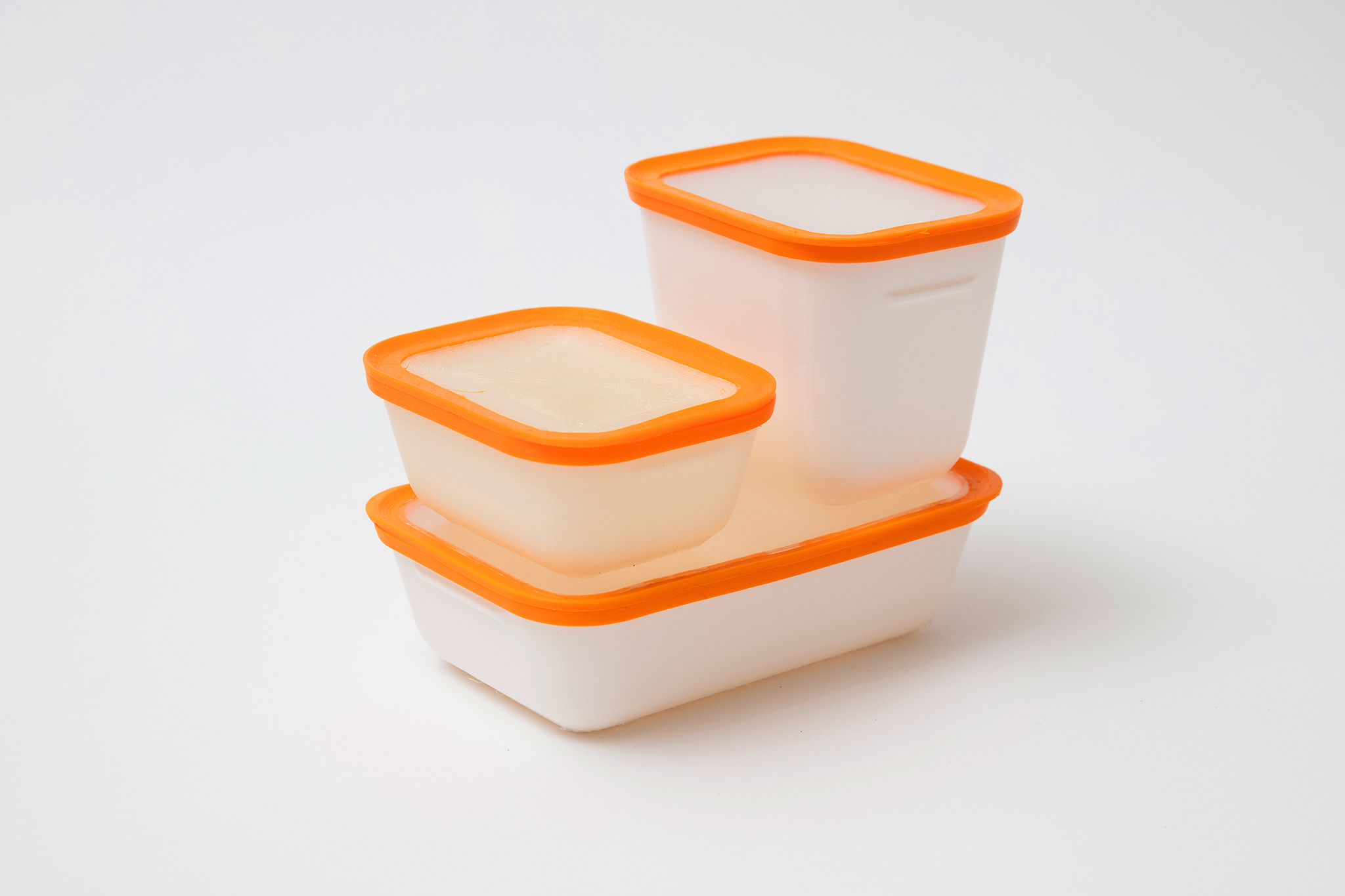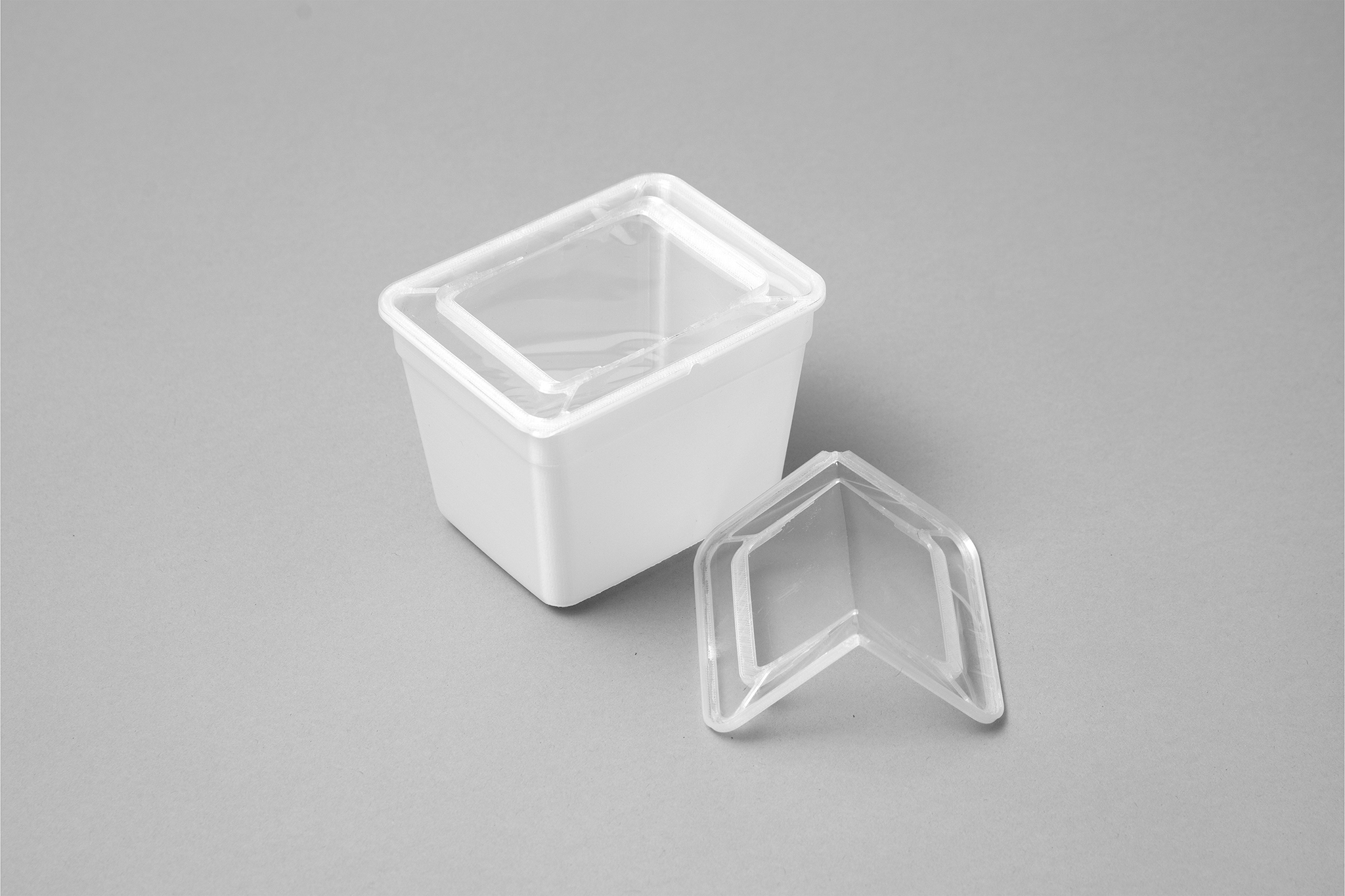In Deutschland fallen jährlich mehr als 8 Mio. Tonnen Verpackungsabfall in der Ernährungsindustrie an. Aufgrund des sich ändernden Verbraucherverhaltens verzeichnen der Sektor Convenience Products, also der Bereich für vorabgefüllte, verzehrfertige Produkte wie fertigen Salaten, Sandwiches, Sushi und Süßwaren mit knapp 8% (2023) ein überproportionales Wachstum. 90% des anfallenden Abfalls in diesem Bereich könnten durch pfandbasierte Mehrweglösungen verhindert werden!
InPooli – ist ein Pool-Mehrwegverpackungssystem für frische und fertige Speisen und Snacks für den Verkauf im Lebensmitteleinzelhandel. Es bietet eine Verpackungslösung, welche alle Anforderungen an eine vergleichbare Einwegverpackung vollständig erfüllt, den Abfall aber um ein Vielfaches reduziert.
Das kreislauffähige Mehrwegkonzept sieht 3 verschieden Standard-Schalen vor, in denen die Lebensmittel verpackt werden. Das Verschlusskonzept wurde unter Beratung mit dem Fraunhofer IVV entwickelt und besteht aus einem rahmenförmigen Mehrwegdeckel, welcher eine vollständig recycelbare Monomaterialfolie über die Schale spannt und abdichtet. Die Folie ermöglicht neben der Dichtefunktion auch die für den Handel unerlässliche Kommunikation.
Die innovative Deckelgestaltung bietet eine erhebliche Materialreduktion im Vergleich zu marktüblichen Lösungen, bei denen Einwegdeckeln in Kombination mit anderen Werbemitteln, wie Etiketten und Banderolen verwendet werden.
Sie ermöglicht den Wiederverschluss und, wenn die Folie entfernt ist, das Stapeln der leeren Verpackungen zur platzsparenden Lagerung und zum effizienten Transport. Bei der Rückgabe muss der Deckel mit der Schale verbunden sein, um die Vollständigkeit der Verpackung sicherzustellen. Vor der Reinigung ist dieser leicht abnehmbar und wird beim Verschließen erneut verwendet.
Ein weiterer Vorteil: Das verschließen mit Folie macht die Verpackung für die Vorratshaltung oder Fremdnutzung unattraktiv und motiviert daher den Verbraucher, die Verpackung dem Mehrwegkreislauf wieder zuzuführen.
Die Maße der Verpackungen sind an bestehende Logistiknormen mit möglichst effizientem Volumenverbrauch und für die Rücknahme mit Pfandautomaten angepasst. Die Schalen sind stabil, leicht, bruchfest und reinigungsgerecht. Gefertigt werden die Behälter aus PET, das durch seine hohe Transparenz eine ansprechende Form für frische Speisen bietet. Darüber hinaus kann das Material am Ende des Mehrwegzyklus in ein bereits etabliertes Recyclingsystem überführt werden und könnte durch hundertprozentigen Rezyklateinsatz sogenanntes Virgin Plastic ersetzen.
In Germany, more than 8 million tons of packaging waste are generated annually in the food industry. Due to changing consumer behavior, the convenience products sector – the market for pre-filled, ready-to-eat products such as salads, sandwiches, sushi, and confectionery – is experiencing a disproportionate growth of almost 8% (2023). 90% of the waste generated in this sector could be prevented through deposit-based reusable solutions!
InPooli is a pool reusable packaging system for fresh and ready-to-eat foods and snacks sold in grocery stores. It offers a packaging solution that fully meets all requirements of a comparable disposable packaging but reduces waste by a multiple.
The circular reusable concept includes three standard containers in which the food is packaged. The closure concept was developed in consultation with Fraunhofer IVV and consists of a frame-shaped reusable lid that stretches and seals a fully recyclable mono-material film over the container. In addition to its sealing function, the film also allows for essential communication for retailers.
The innovative lid design offers a significant reduction in material compared to market-standard solutions that use disposable lids in combination with other promotional materials such as labels and bands.
It allows for re-closing and, once the film is removed, the empty containers can be stacked for space-saving storage and efficient transport. When returning the container, the lid must be connected to the container to ensure the completeness of the packaging. Before cleaning, the lid is easily removable and reused when closing the container.
Another advantage is that sealing the container with the film makes it unattractive for storage or external use, thereby motivating the consumer to return the container to the reusable cycle.
The dimensions of the containers are adapted to existing logistic norms with the most efficient volume consumption and for return with deposit machines. The containers are stable, lightweight, shatterproof, and easy to clean. They are made of PET, which due to its high transparency provides an attractive shape for fresh foods. Moreover, at the end of the reusable cycle, the material can be integrated into an already established recycling system and could replace so-called virgin plastic with 100% recycled material.
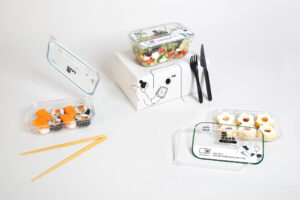
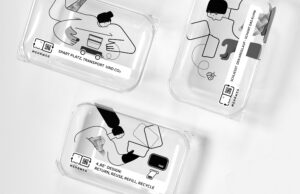
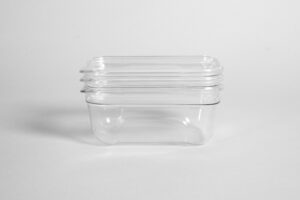
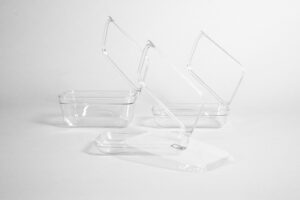
PROZESS
Betreut von
Prof. Ineke Hans
Prof. Holger Neumann
Gosia Warrink
